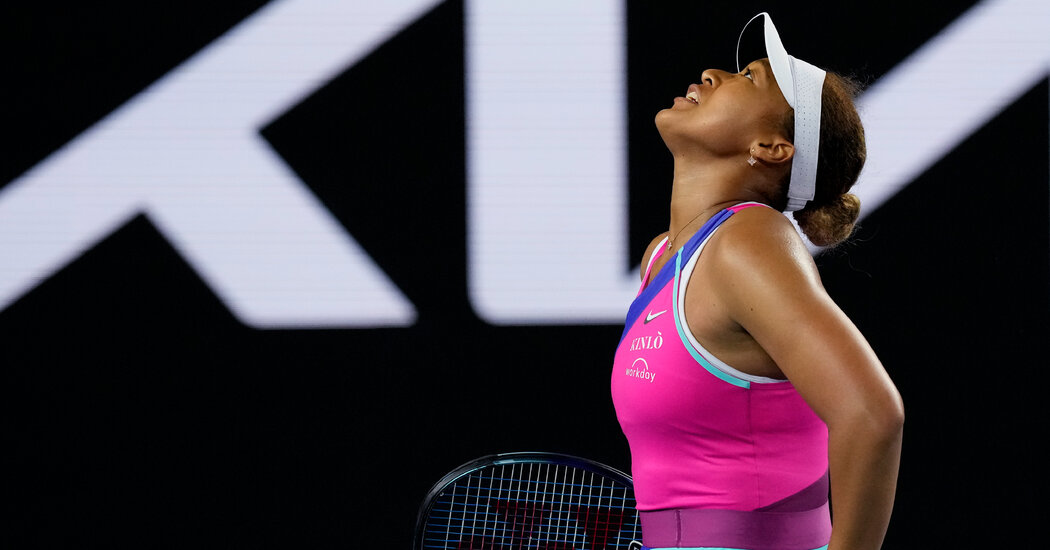The unseeded American Amanda Anisimova eliminated the four-time Grand Slam champion in three sets, an early end to her latest return to the tour.
MELBOURNE, Australia — Naomi Osaka, a four-time Grand Slam singles champion who nearly walked away from tennis last year, was eliminated from the Australian Open in three tense sets on Friday by the unseeded American Amanda Anisimova, 4-6, 6-3, 7-6 (10-5).
Osaka, 24, was returning to major-tournament action in Melbourne after taking an extended break from the game to rekindle her love of the sport, and a year in which her openness about her mental health struggles had altered the discussion of her successes, and her more recent — and painfully public — disappointments.
Osaka was seeded just 13th here but showed plenty of fire and desire in her third-round match against Anisimova: generating trademark thunder with her heavy groundstrokes and pumping her fist and shouting “Come on!” to commemorate her successes. But Anisimova, long considered one of the most promising young players in the game, held remarkably firm, coming back from an inconsistent opening set and finding her range in her first match against Osaka.
“Going into this match I knew I had to be playing sharp if I wanted to give myself a chance,” Anisimova said. “Naomi is always going to be playing well, and she’s an absolute champion, so I knew that I really had to step up my game and try to be aggressive. I think that’s what I started doing in the second set. Honestly, I’m so grateful that I was able to play so well today.”
A semifinalist at the French Open at age 17 in 2019, Anisimova looked ready to play a leading role in the game consistently in her teens, but that was before family tragedy: the death of her father and longtime coach Konstantin of a heart attack in August 2019 shortly before the United States Open.
Osaka entered their meeting carrying her own burdens. Last year had been a forgettable one for Osaka, 24, who entered it as the dominant figure in her sport and the world’s highest paid female athlete and ended it as something else altogether.
Her game began to unravel in the early spring, and a confrontation with French Open officials over her refusal to appear at mandatory postmatch news conferences led to her withdrawal from the tournament. Afterward, she went public with her yearslong battle with depression, took two months off, then returned at the Tokyo Olympics, where she lit the torch but lost in the third round amid relentless pressure to excel.
“There was a time after the French Open where I felt like everyone was judging me,” she had said after her first-round win at the Australian Open Monday. “It feels a bit weird when you go into a stadium to play and you’re kind of concerned what everyone’s gaze means.”


























